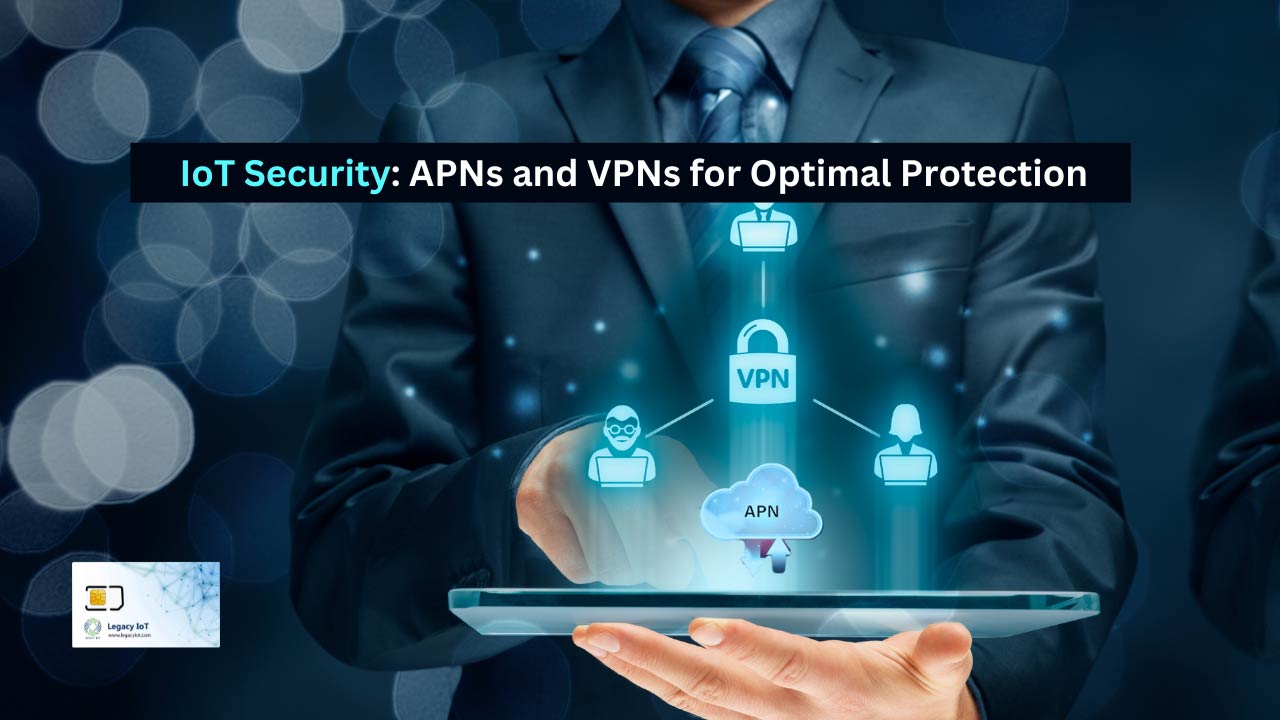Security is paramount when it comes to linked or connected devices. Whether using an IoT sensor to gather data or browsing the web on your laptop, information security is crucial. With the rise in cyber threats, terms like APN (Access Point Name) and VPN (Virtual Private Network) are frequently discussed in cybersecurity circles.

It is imperative to acknowledge that APN and VPN have different functions. So, what makes them different from one another and how do they work best together, especially when it comes to overseeing massive IoT deployments effectively? Now let’s examine the details.
Unraveling IoT Security: The Role of APN And VPN
Every gadget or device connected to the internet presents a security risk in a world where connections are growing more and more frequent. Strong security measures are vital, as seen by the 34% increase in security vulnerabilities that has coincided with the growth of IoT, IT, and medical devices.
A security breach might have catastrophic consequences, affecting everything from the operation of a manufacturing plant to the compromise of private medical information. Therefore, selecting the right APN and VPN solutions is essential, and security should always come first in IoT solutions (IoT Technology) or maintaining IoT security.
Decoding APN: Gateway to Connectivity
An Access Point Name (APN) defines device security and connectivity parameters, which serves as a gateway for internet access over cellular networks. An APN acts as the entry point for devices to connect to the larger network, whether it be public or private networks.
Want to know about Access Point Name (APN) for IoT devices?
Public APN: The Conventional Route
Mobile network operators (MNOs) provide public alternate point networks (APN) with standardized configurations that are appropriate for daily needs. Devices essentially operate under a shared APN, which streamlines connectivity without requiring further setup. This is similar to consumer cellular devices.
Private APN: Tailored Security Measures
On the other hand, a private APN isolates device traffic from the broader network, allowing customized settings to meet specific needs. This approach enhances security by protecting devices from external threats and offering features such as static IP addresses and concealed connectivity providers.
Unveiling VPN: Fortifying Data Transmission
A Virtual Private Network (VPN) creates an encrypted tunnel between data centers and connected devices, securing data against unauthorized access.
Want to know about Virtual Private Network (VPN) for IoT devices?
Secure Channel: Protecting Data Integrity
VPNs ensure data confidentiality and integrity by protecting devices from possible surveillance through the encryption of data transmission. Device IP addresses are hidden via this encrypted route, reducing the possibility of tracking and interception by hostile parties.
Data Security: Safeguarding Sensitive Information
VPNs protect personal data and prevent eavesdropping by strengthening data transfer across encrypted tunnels. In order to ensure privacy requirements are followed, this strong encryption technique is especially important for industries handling sensitive data, including the medical field.
Confidentiality And Privacy: Upholding Regulatory Compliance
VPNs maintain privacy and confidentiality standards by passing data through a private route or private channels, which is essential for complying with regulatory requirements. This promotes compliance and trust by making sure that private data is protected from unwanted access.
Harmonizing APN And VPN In IoT Deployments
APNs and VPNs work in tandem to strengthen security in the networked world of the Internet of Things (IoT). An extra layer of encryption and anonymity is provided by VPNs, even if APNs act as the internet’s entrance point. VPNs can be integrated at either the device or gateway layer, enhancing security measures, depending on the requirements of the implementation.
Secure IoT Connectivity with Legacy IoT
At Legacy IoT we understand the critical importance of IoT security. Our plug-and-play private APN solution is designed to meet stringent security standards, ensuring seamless connectivity without compromising safety. Whether you need a custom private APN or a VPN solution, our team can guide you through the process, protecting your IoT deployment from potential threats. With features like stolen SIM prevention and behavior detection, our global M2M SIM card for IoT devices offers unparalleled security, enabling you to connect with confidence.





